Face Fit Tester Training Course
BSIF Fit2Fit Approved Course
Train the Tester Fit2Fit Training
(often referred to as Train the Trainer)
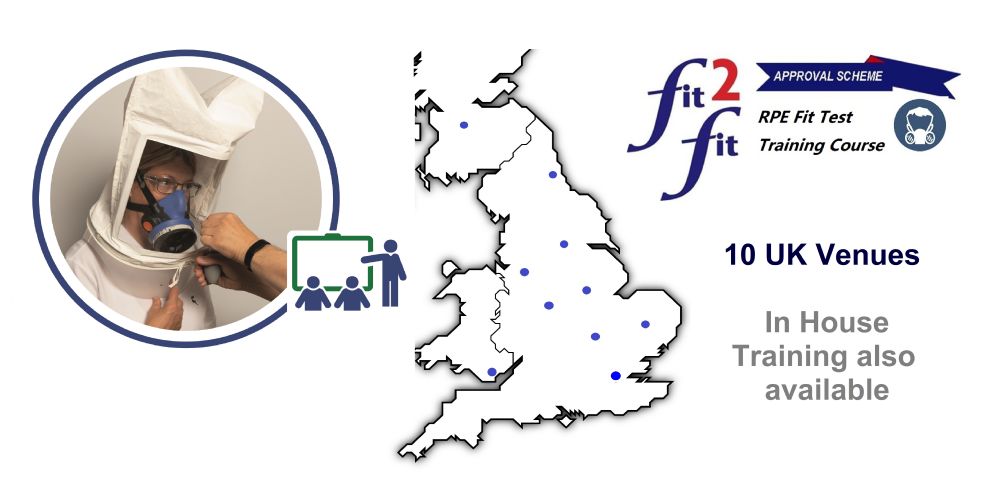
Qualitative £200 per candidate
Scotland £220
Fit Tester training Course Dates and Venues
Fit2Fit Approved Course
2025
April 29th - W Midlands (Wolverhampton) - Now Full
April 30th - W Midlands (Wolverhampton) - 3 Places
May 6th - North East (Washington) - 2 Places
May 13th - East Midlands (Kegworth) - 3 Places
May 14th - East Midlands (Kegworth) - 3 Places
May 27th - London (Chorleywood) - 4 Places
June 3rd - Scotland (Glasgow) - 1 Place
June 9th - North West (Warrington) - 4 Places
June 10th - North West (Warrington) - Now Full
June 12th - East Anglia (Thetford) - 5 Places
June 17th - South Wales (Cardiff) - 6 Places
June 20th - Yorkshire (Wakefield) - 6 Places
June 24th - W Midlands (Wolverhampton) - 6 Places
July 8th - North East (Washington) - 6 Places
July 15th - East Midlands (Kegworth) - 6 Places
July 22nd - London (Chorleywood) - 6 Places
July 29th - Scotland (Glasgow) - 6 Places
August 5th - North West (Warrington) - 5 Places
August 7th - East Anglia (Thetford) - 6 Places
August 19th - South Wales (Cardiff) - 6 Places
August 21st - Yorkshire (Wakefield) - 6 Places
August 26th - W Midlands (Wolverhampton) - 6 Places
September 2nd - North East (Washington) - 5 Places
More dates to follow
London North West London East North East North West
East Midlands East Anglia Yorkshire
South Wales Scotland West Midlands
RESPIRATOR RPE FACE FIT TESTER TRAINING COURSE
For Qualitative Fit Testing of Disposable and Half Masks
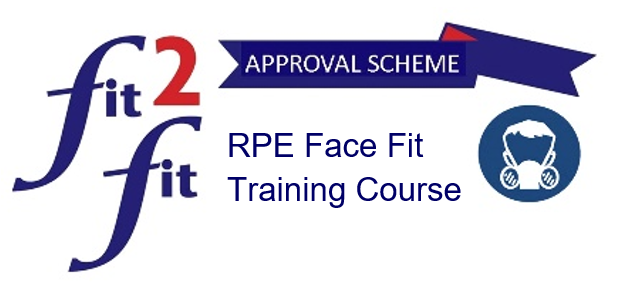
FIT TESTING TRAIN THE TESTER
FULL day covering the 14 areas of competence in
Delivered by Fit2Fit Accredited Tester
CLICK ON LOCATION IMAGE TO SEE MORE DETAILS
CLICK ON THE LOCATION IMAGE TO SEE MORE DETAILS
CLICK ON THE LOCATION IMAGE TO SEE MORE DETAIL
CLICK ON THE LOCATION IMAGE TO SEE MORE DETAILS
Fit2Fit Approved Course
A FULL day course for Qualitative Fit Testing of RPE including theory and plenty of practice to ensure you go away having a solid understanding of RPE Respirator Qualitative Fit testing.
Delivered by an experienced Fit2Fit accredited Fit Tester
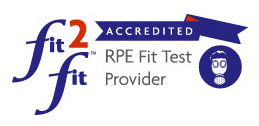
RPE FIT TESTER TRAINING COURSE INCLUDES
RPE Overview, maintenance and how it works
Full Practical Qualitative Fit Test Demonstration
Practice Fit Testing in Pairs
Respiratory Protective Equipment Limitations
Background to Face Fit Testing
Why protect and reduce risk from respiratory disease –
Moral & Health issues
Relevant Legislation / Guidance in Regards to RPE Fit Testing -
- COSHH, CAW, CLaW, HSE- INDG479, HSG53
Preparation of the face fit test Equipment
Face Fit Test Protocols and Procedures
Mask Fit Test Do’s & Dont’s
The Face Fit test Sensitivity Test
The 7 Face Fit Test Exercises
RPE Wearer Pre Use Fit Checks
Face Fit test Pass Levels
Mask Fit Test Failures and Re-Tests
Troubleshooting & Problem Solving during RPE Fit testing
Planning & Managing a Face Fit Testing Program
Managing Data and Test Documentation with templates
Practical RPE Face Fit Assessment
Multiple Choice Theory Assessment
Introduction to the BSIF - Fit2Fit Scheme Accreditation
Questions and feedback
Fit2Fit TRAINING COURSE OPEN DAYS
FULL DAY 08.45 – 17.00
£200 plus VAT Training Only
£220 plus VAT in Scotland
Fit Testing Kits
JSP £120 plus VAT
3M £170 plus VAT
London West Chorleywood
West Mids Wolverhampton
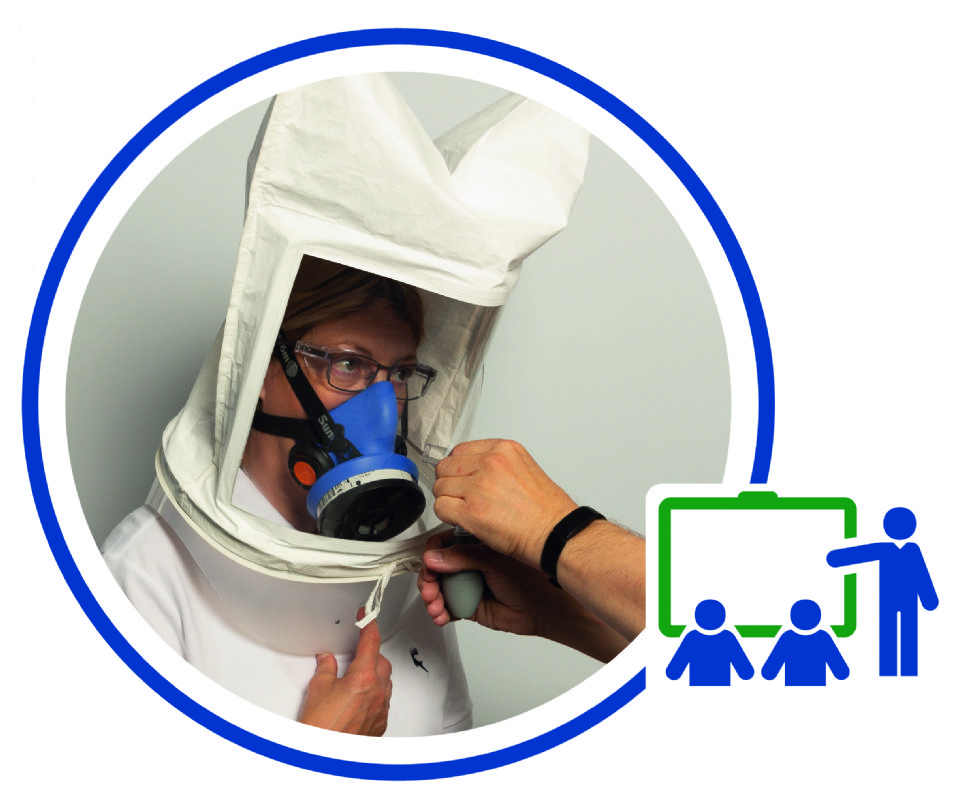 Yorkshire Wakefield
Yorkshire Wakefield
North West Warrington
North East Washington
East Midlands Notts / Derby Leicester
East Anglia Thetford
Scotland Glasgow
South Wales Cardiff
FREE PARKING and LUNCH Included
To Book your course
Call or email us
07944 648167 01246 252307
info@aspiresafetyandhealth.co.uk

Choose from the options listed and contact us
Click Button for Information PDF
2025
Fit2Fit Approved Fit Tester Training Venues 2024/25
.jpg)
Fit testing basics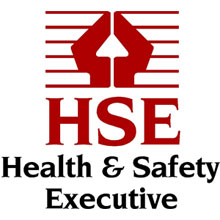
Introduction
Where RPE is used, it must be able to provide adequate protection for individual wearers. RPE can't protect the wearer if it leaks. A major cause of leaks is poor fit – tight-fitting facepieces need to fit the wearer’s face to be effective.
As people come in all sorts of shapes and sizes it is unlikely that one particular type or size of RPE facepiece will fit everyone. Fit testing will ensure that the equipment selected is suitable for the wearer.
What you need to do
The best time to do fit testing is at the initial selection stage, when individual users can be given a choice of adequate models of RPE. You should ensure that the make, model, type and size of facepiece that they wore when they had their successful fit test is made available for their use. If an employee wears more than one type of tight-fitting facepiece, then each type of facepiece should be fit tested.
How to do it
RPE fit testing should be conducted by a competent person - you should take steps to ensure that person who carries out the fit test is appropriately trained, qualified and experienced, and is provided with appropriate information to undertake each particular task. The British Safety Industry Federation (BSIF) has introduced a scheme for fit testers, which may provide evidence to help you decide whether a fit tester is competent.
A note on facial hair
Many masks rely on a good seal against the face so that, when you breathe air in, it is drawn into the filter material where the air is cleaned. If there are any gaps around the edges of the mask, ‘dirty’ air will pass through these gaps and into your lungs. It is therefore very important that you put your mask on correctly and check for a good fit every time.
Facial hair – stubble and beards – make it impossible to get a good seal of the mask to the face.
If you are clean-shaven when wearing tight-fitting masks (ie those which rely on a good seal to the face), this will help prevent leakage of contaminated air around the edges of the mask and into your lungs. You will therefore be breathing in clean air, which will help you stay healthy.
If there are good reasons for having a beard (eg for religious reasons), alternative forms of RPE, that do not rely on a tight fit to the face, are available.
http://www.hse.gov.uk/respiratory-protective-equipment/fit-testing-basics.htm
Our Fit2Fit Approved Course will give the candidates many tools to use to explain why Tight Fitting respirators do not work over facial Hair, piercings and make-up etc. Candidates will then be able to help their organisation to train individuals as demanded by the HASAWA 1974 and PPE Regulations.
Individuals who are required to wear RPE will then understand WHY they are being asked to be clean shaven in the seal area of the respirator.
Training includes all April 2019 Revisions in INDG479 & Fit2Fit Companion
Fit2Fit Approved Course

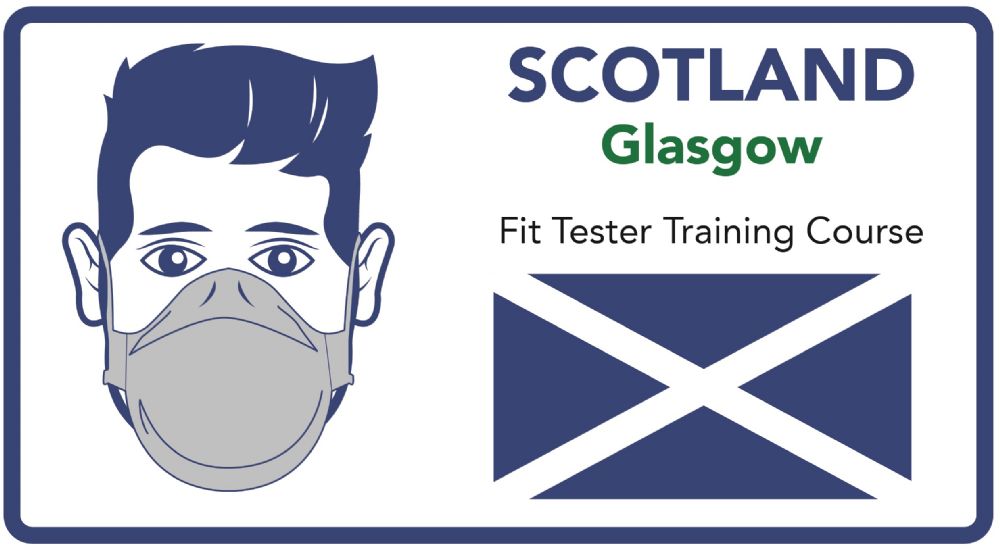
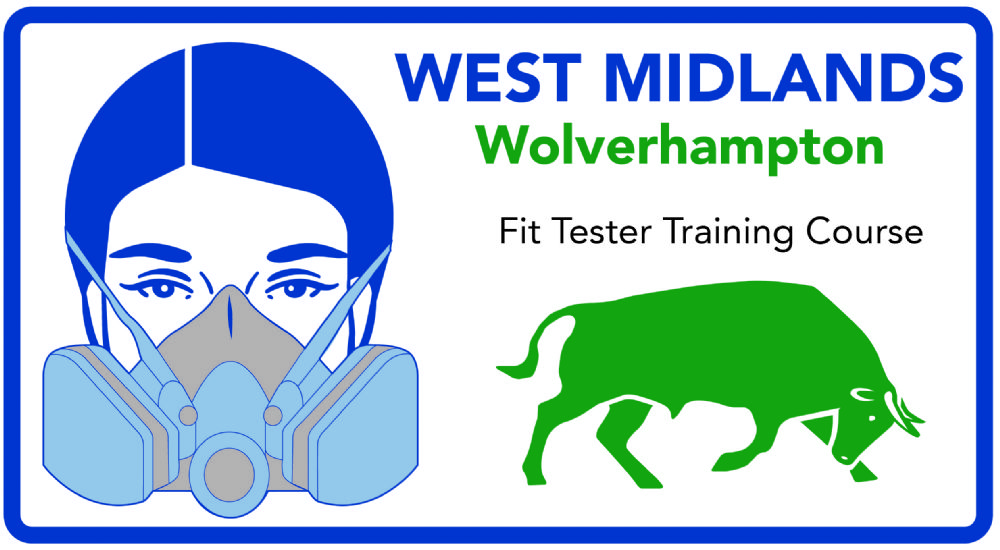
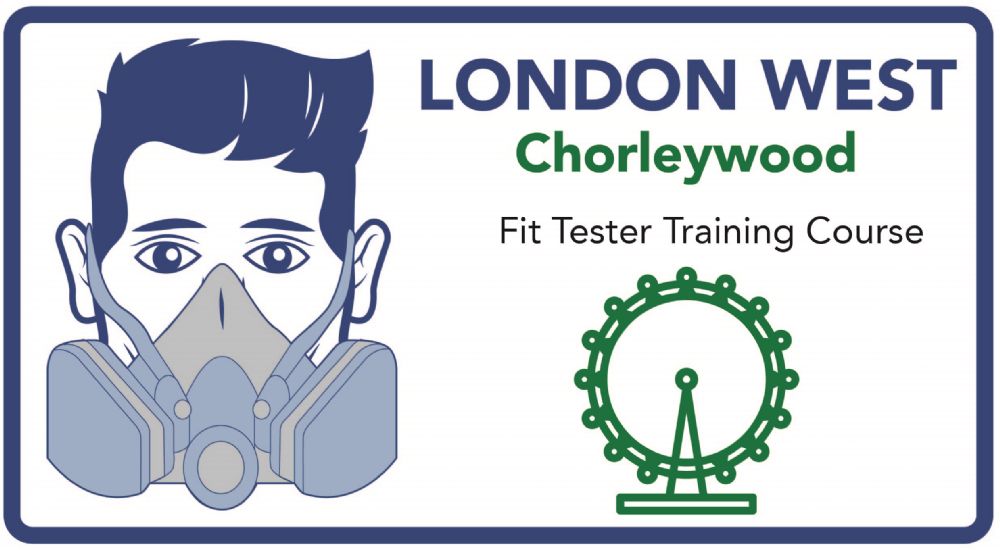
.png)
 loading...
loading...